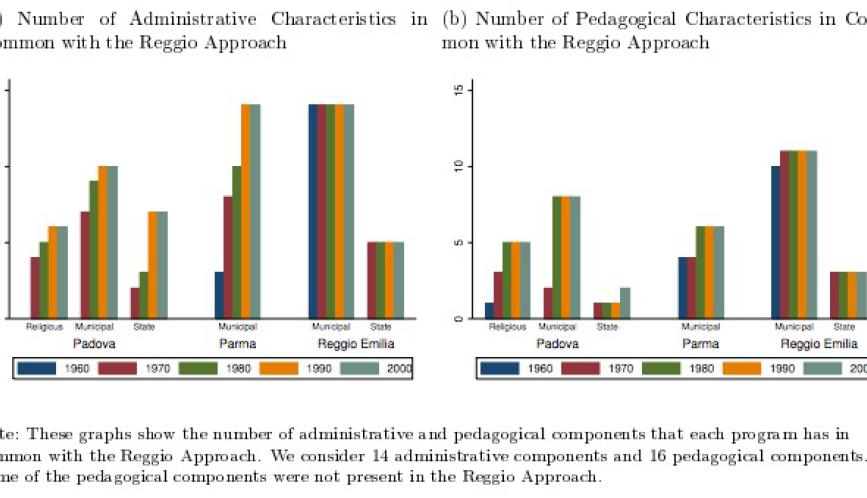The Reggio Approach is an early childhood program started in Reggio Emilia, Italy in the early 1960's that has since been implemented in locations around the world. Children are enrolled from birth to age 6. Started by Loris Malaguzzi, the progressive approach views children as individuals with potential and rights. A new working paper by HCEO Co-director James Heckman, ECI network member Lynne Pettler-Heckman, ECI/FI network member Daniela Del Boca, ECI/HI network member Pietro Biroli, and co-authors Yu Kyung Koh, Sylvi Kuperman, Sidharth Moktan, Chiara D. Pronzato, and Anna Ziff, evaluates the program using data from five different age cohorts.
"Evaluation of the Reggio Approach to Early Education" found that compared to those who did not receive formal childcare, the Reggio Approach "significantly boosts outcomes related to employment, socio-emotional skills, high school graduation, election participation, and obesity. " Most positive and significant effects were found between individuals in the treatment group and those who did not attend a formal childcare program.
The authors looked at data on individuals from the Italian cities of Reggio Emilia, Parma, and Padova. The treatment group was exposed to the Reggio Approach through municipal early childhood schools. The control group either received no formal childcare or was exposed to programs offered by the state or religious systems.
Results were more pronounced for the older cohorts. A possible explanation for this finding is that features of the Reggio Approach spread throughout Italy over time. Comparisons with individuals who received alternative forms of childcare "do not yield strong patterns of positive and significant effects."
You can read "Evaluation of the Reggio Approach to Early Education" here.



